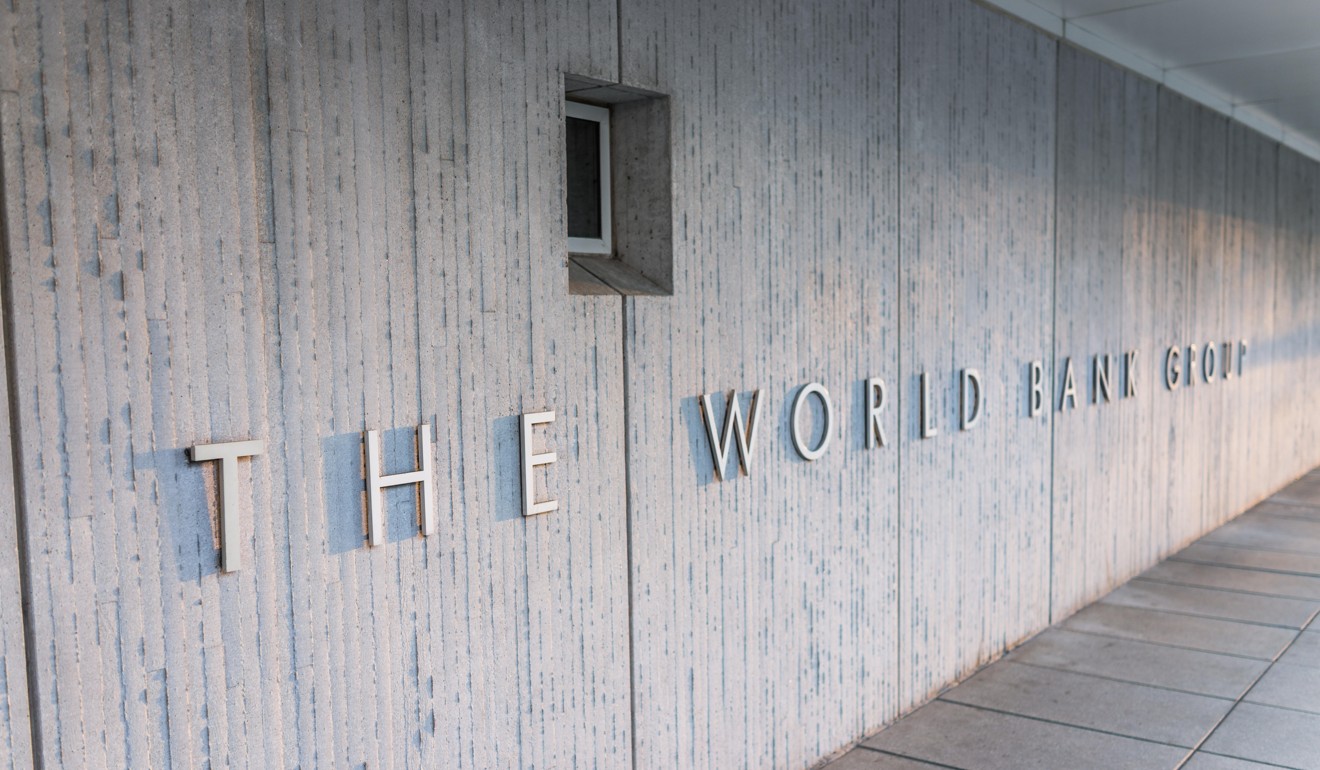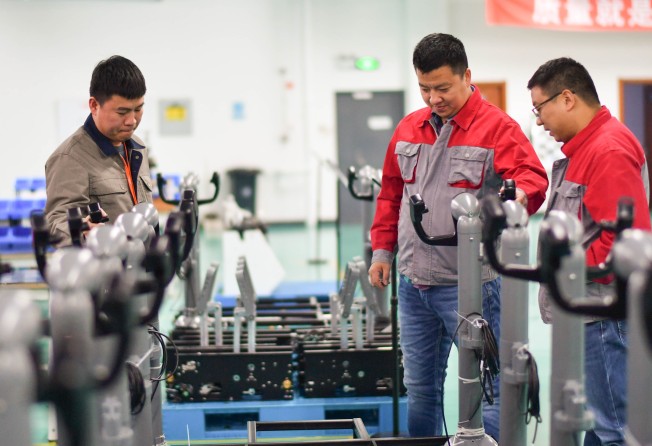
China should address US concerns on investment and tech transfer to defuse trade war, says World Bank
- Washington-based international development bank sees only modest decline in 2019 Chinese growth rate, but advises cut in business taxes to support the economy
- It also advises Beijing to strengthen the social safety net to improve consumer confidence and household spending

China should address the concerns expressed by the United States and other major trading partners over forced transfer of technology and openness to investment to de-escalate ongoing trade tensions, the World Bank advised on Thursday.
In addition, Beijing’s forthcoming domestic economic stimulus plan should focus on tax cuts and strengthen the social safety net to increase consumer confidence and household spending, the international development bank said in its latest “China Economic Update” report.
“While continuing the dialogue with the US administration, China could intensify its efforts to address trading partners’ concerns over technology transfer and reciprocity in investment conditions,” the Washington-based bank suggested.
At the same time, the bank endorsed Beijing’s reform performance by boosting the standing of the country’s business environment to 46th out of 190, up from 78th, in its “Doing Business 2019” report.
The bank’s comments came as US and Chinese officials are holding a series of preliminary talks to prepare for formal negotiations, likely in January, to attempt to negotiate a deal to resolve the US complaints at the heart of the current trade war, including the large bilateral trade imbalance, forced technology transfer, intellectual property protection, the “Made in China 2025” high-tech industrial strategy and state subsidies to favoured industries.

Chinese President Xi Jinping and US President Donald Trump agreed a 90-day trade truce on December 1, but the US has threatened to impose additional tariffs on Chinese imports on March 1 if no deal is struck by then.
China’s Ministry of Commerce confirmed on Wednesday that the two countries have held talks at a vice-minister level on trade and economic issues and “exchanged views on matters of mutual concern”.
To make progress in the trade talks, Beijing should commit to further shorten its “negative list” of domestic investments that are prohibited or restricted to receive foreign investment by the Chinese government, and limit it to industries involved in national security, the World Bank said.
While the impact of the trade war will slow Chinese growth next year, the government has sufficient room to ensure that the decline remains modest.
Chinese growth will moderate to 6.2 per cent in 2019 and 2020 from 6.5 per cent this year, the bank predicted.
“Consumption will remain the main driver of growth, while higher investor uncertainty and slower credit growth are expected to weigh on investment,” said John Litwack, World Bank lead economist for China.
“A deceleration in global demand growth and higher US import tariffs will negatively affect net exports.”
Even though Beijing faces a tough task to manage the trade-related headwinds hitting the economy while maintaining its effort to reduce financial risks, “the authorities have the policy space necessary to support the economy in the current environment of high uncertainty,” Litwack said.
Beijing is widely expected to enact further economic stimulus measures, including additional government spending, a tax cut and more lending support for smaller firms.
The World Bank suggested that the plan should include a cut in business taxes.
“China’s statutory corporate income tax rate is 25 per cent, compared to an average of 22 per cent in the OECD (Organisation for Economic Co-operation and Development) and, despite recent reforms, social security taxes paid by employers account for 33 per cent of the wage bill compared to 21 per cent in the OECD,” it said.
The World Bank also repeated the advice that China should do more to boost the social safety net to increase consumer confidence and spending.
“To stimulate the economy, fiscal policy could focus on boosting household consumption rather than public infrastructure,” with more government spending targeted at health care, education and social protection, according to the report.
“Such measures would create jobs, deliver higher-quality public services, and provide better support to vulnerable families. In the short term, these measures would encourage households to save less and spend more,” said Elitza Mileva, World Bank senior economist and main author of the latest report.
“In the long run, they would boost worker productivity and China’s growth potential and help the country achieve a more equal society.”
The People’s Bank of China already announced a further monetary stimulus step on Wednesday evening, saying it will create a new, Targeted Medium-Term Lending Facility to provide more credit support for smaller private firms, the major victims of the trade war.
This will involve cutting the lending rate 15 basis points below its prevailing interest rate, with the announcement coming only hours before the US Federal Reserve raised its interest rate by a quarter of a percentage point.